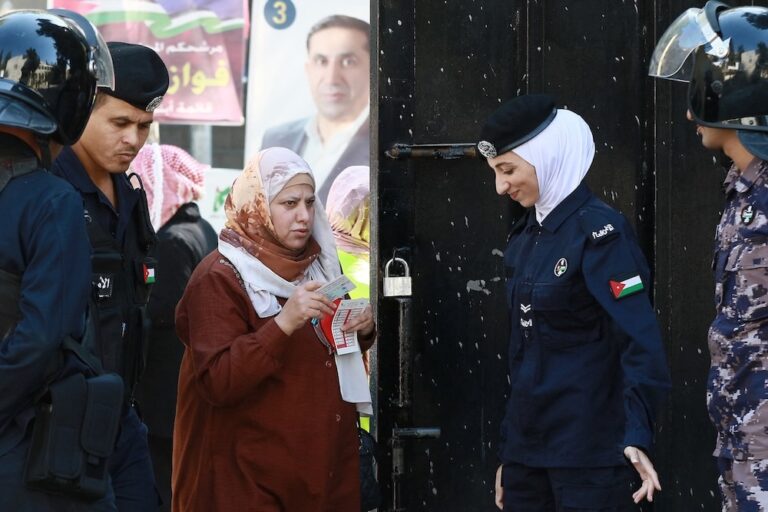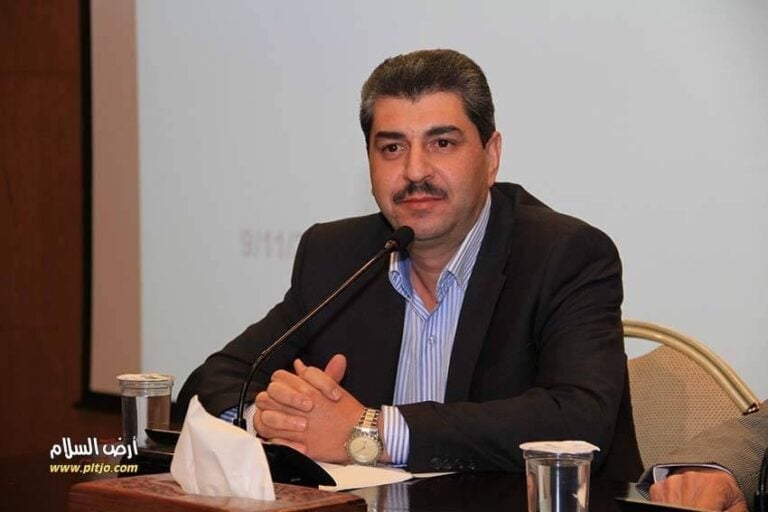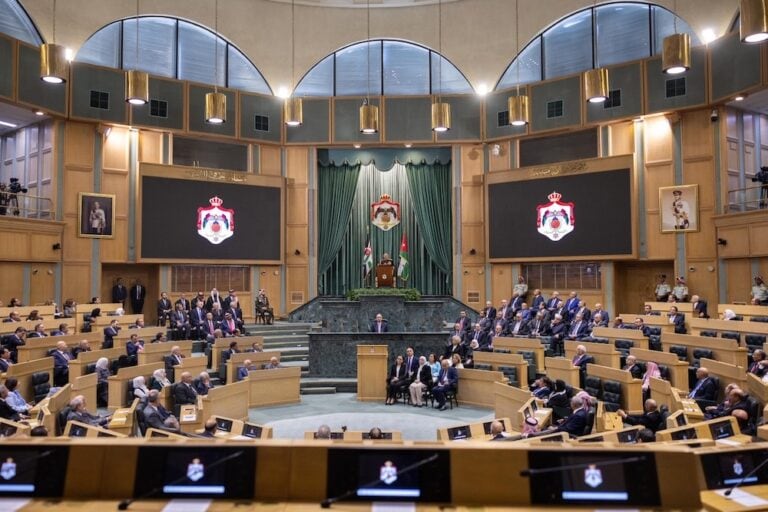(ARTICLE 19/IFEX) – The following is the resolution on media freedom and censorship in Jordan adopted by participants at a seminar organised by ARTICLE 19 and its two Jordanian partners, al-Urdun al-Jadid and the Arab Media Institute, in Amman, Jordan on 28-29 October 1997. SEMINAR RESOLUTION Fundamental Principles 1. Freedom of expression is a fundamental […]
(ARTICLE 19/IFEX) – The following is the resolution on media
freedom and censorship in Jordan adopted by participants at a
seminar organised by ARTICLE 19 and its two Jordanian partners,
al-Urdun al-Jadid and the Arab Media Institute, in Amman, Jordan
on 28-29 October 1997.
SEMINAR RESOLUTION
Fundamental Principles
1. Freedom of expression is a fundamental human right, guaranteed
by the International Covenant on Civil and Political Rights,
ratified by Jordan. Freedom of expression is also guaranteed by
the Jordanian Constitution and the Jordanian National Charter,
and is an essential underpinning of democracy, to which the
Jordanian King and government are committed. All Jordanians are
entitled to enjoy this right to the full and it should be
respected both in law and in practice.
2. Freedom of the press is a key aspect of freedom of
expression, particularly because of the important roles of the
press as watchdog of government and in providing information to
the public. As such, freedom of the press should be respected
both in law and in practice.
3. Cultural and social differences cannot justify restrictions
on the key rights to freedom of opinion and expression. In
particular, government control over the media cannot be justified
on this basis.
General Recommendations
Seminar participants stressed the need to create a political,
legal and economic framework in which press freedom, independence
and pluralism could flourish. To this end, the Seminar adopted
the following specific recommendations which it decided to
address to the Government of the Hashemite Kingdom of Jordan:
1. Revoke without delay the recent amendments to the 1993 Press
and Publications Law, contained in the Provisional Law No. 27 of
1997. In particular, the minimum capital requirement imposed on
newspapers should be eliminated.
2. Revoke those provisions of the Penal Code which allow
journalists and other media workers to be detained without trial.
Special provisions in the Penal Code relating to journalists
should be repealed, including those on defamation. In addition,
content restrictions in the Penal Code should be strictly limited
to those which are permissible under constitutional and
international guarantees of freedom of expression.
3. Eliminate the censorship and licensing functions of the
Department of Press and Publications in respect of the media and
other publications, including foreign publications.
4. Amend the Jordanian Press Association Law to bring it into
line with international and constitutional guarantees of freedom
of expression. In particular, restrictions on the practice of
journalism, such as the requirements that all journalists belong
to the Jordanian Press Association.
5. Reduce government ownership of the print media in keeping
with the provisions in the 1993 Press Law which required the
government to reduce its share of ownership in daily newspapers.
6. Eliminate the government monopoly over Jordan’s broadcast
media, in keeping with the 1996 draft law for private channels,
and repeal the 1985 law prohibiting private investment in
broadcast media. In addition, the state-funded broadcast media
should be transformed from government media outlets into genuine
public service broadcasters whose primary goal is to serve the
public interest. Finally it should be established an independent
regulatory authority for both the public and private broadcasting
sectors.
7. Create an environment in which self-regulation by the media
can be an effective way of addressing public concerns about media
abuse, including concerns relating to privacy.
8. Encourage and support, including by financial means, the
establishment of independent institutions with a mandate to study
questions relating to the press and broadcast media and to
improve standards of journalism, for example, through training
programmes.
9. Establish a Constitutional Court to determine the
constitutionality of Jordanian laws with the power to strike down
those laws which are inconsistent with constitutional human
rights guarantees, in particular those relating to freedom of
expression. All courts should be able to take the Constitution
into account when deciding cases and the independence of the
judiciary should be fully respected.
10. Ratify the (first) Optional Protocol to the International
Covenant on Civil and Political Rights in order to allow right of
petition to the UN Human Rights Committee by individuals in
Jordan who allege that their rights have been violated, following
completion of all domestic remedies.
A copy of the resolution was sent by ARTICLE 19 to Manuel Marin,
Commissioner for External Relations with Southern Mediterranean
Countries of the European Commission. ARTICLE 19 requested that
the European Commission note and support the concerns expressed
in the resolution, and that, within the context of the
Association Agreement recently signed by the European Union and
Jordan, the European Parliament raise with Jordanian authorities
the importance of ensuring freedom, independence and pluralism of
the media and, specifically, to call for the immediate repeal of
the May 1997 amendments to Jordan’s Press and Publications Law
under which thirteen weekly newspapers have effectively been
suppressed (see IFEX alerts).


